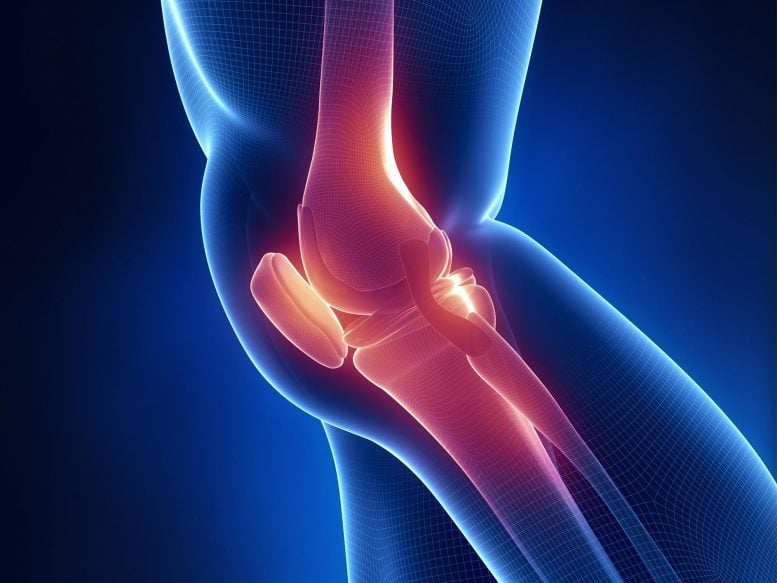
Genicular nerve radiofrequency ablation is a minimally invasive treatment for knee pain due to osteoarthritis. Recent research to be presented at the Society of Interventional Radiology Annual Scientific Meeting in Phoenix suggests that this treatment can significantly reduce pain, especially for adults who are 50 and older.
Treatment improved quality of life for all study participants.
Genicular nerve radiofrequency ablation is a minimally invasive treatment for knee pain due to osteoarthritis of the knee, and can significantly reduce pain, especially for adults who are 50 and older. This is according to new research to be presented at the Society of Interventional Radiology Annual Scientific Meeting in Phoenix. This is the first time a study has examined patient demographics, prior surgical history and other clinical characteristics that may predict the level of pain reduction after treatment.
“We know this treatment has clear benefits in reducing pain and improving the ability to do everyday activities for patients,” said Kaitlin Carrato, M.D., chief resident in interventional radiology at MedStar Georgetown University Hospital. “But now that we know it’s particularly helpful for those over 50 years old, it may mean that those with chronic pain conditions, like arthritis, would benefit more from this treatment than patients suffering acute pain, such as an injury.”
Interventional radiologists perform genicular nerve radiofrequency ablation by image guidance to place probe needles next to the nerves of the knee that can send pain signals to the brain. The probes generate radio waves, creating a ball of heat to dull or destroy the pain nerve endings. These nerves do not control muscles or affect balance, making the procedure safe. Furthermore, patients leave with Band-Aids, not stitches. The treatment in other studies has been shown to last for approximately six months to up to two years.
The study examined pain reduction for 36 patients using the visual analog scale (VAS) and the Western Ontario McMaster Universities Osteoarthritis (WOMAC) pain scale. Researchers evaluated whether pain reduction levels were influenced by demographics and clinical characteristics, such as age, gender, body mass index, history of prior surgery and history of fibromyalgia.
Before treatment, patients had a mean baseline VAS of 8.58 and a mean baseline WOMAC of 66.6. After treatment, all study participants experienced a statistically significant reduction in pain. The mean VAS of 8.58 decreased to 5.02, while the mean WOMAC score decreased from 66.6 to 41. The greatest increase in functionality and decrease in pain was recorded for patients 50 and older compared to younger participants.
“Roughly one in four U.S. adults have knee pain,” said John B. Smirniotopoulos, M.D., an interventional radiologist at MedStar Georgetown University Hospital. “This treatment can offer many of those people a chance to enjoy everyday activities and regain a higher quality of life by decreasing the pain that they experience on a daily basis.”
The researchers are currently conducting long-term studies into this treatment that dive deeper into what other factors could predict how well the treatment will work. The same treatment is also conducted with shoulder, hips and sacroiliac joints, where the spine connects to the pelvis.
Abstract 120: Genicular Nerve Radiofrequency Ablation: Is there a Predictor of Outcomes? K. Carrato, N. Jain, A. Eckert, M. Lamberti, C. Sutton, J. Sens, K. Horton, A. Khan, N. Tabori, G. Sivananthan, J. Smirniotopoulos. Annual Scientific Meeting, March 4-9, 2023. This abstract can be found at sirmeeting.org after the embargo time.

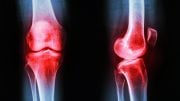
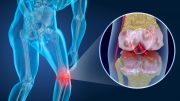
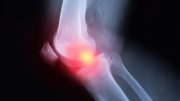


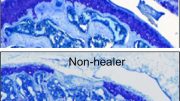
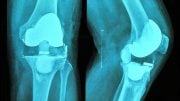
I want to have this procedure done but I cant find any Intervent Radiologist in the Phila PA area who have done it..Can you help me ?
Looking for a physician who performs interventional radiology for arthritic knee pain in or near Reading PA
Is there a Doctor or Clinic that is using the new knee pain treatment…..Genicular Radiofreguency Ablation..in Virginia??
I live in San Antonio TX is there a clinic in tx..would like to volunteer i get gel shots n steroid.
I live in Arizona. Is there a location anywhere in this state that performs this procedure?
I am 62 years old. I live in Manteca California is there a place near me to have this done and does Medi-Cal cover this procedure?
Is there anywhere in England that does it.
What will happen after 2 years of Genicular Radiofrequency Ablation, I am gonna need another Genicular Radiofrequrncy Ablation?
I live in Philadelphia pa and currently receive cortisone and gel shots , i would love to try this new treatment..
Is there anywhere in Ohio. That’s doing this procedure?
Is there any clinic in Spain that does this procedure?
I’ve in northern NEW JERSEY. Can you recommend a place?
Is there a place for treatment in Alberta canada